In today’s fast-paced digital environment, ensuring the safety of business assets has never been more crucial. Every organization, regardless of size or industry, must prioritize security to safeguard its resources and reputation. When considering your company’s security posture, you might ask, What Are the Best Security measures to adopt? This article explores various effective strategies and practices that can enhance your company’s security framework. For those venturing into the online entertainment sector, investing in security is paramount; for example, What Are the Best Security Features for Bangladeshi Online Casino Apps? олимп казино уз prioritizes robust measures to protect user information and transactions.
First and foremost, it’s essential to understand the different areas of security that businesses need to address. These can be broadly defined into three categories: physical security, digital security, and personnel security. Let’s delve into each of these domains to identify the best practices suitable for today’s businesses.
Physical Security
Physical security is the first line of defense for any business. This involves protecting physical assets such as buildings, equipment, and personnel. Best practices in physical security include:
- Access Control Systems: Implement systems that control who can enter the premises. This can include key cards, biometric scanners, or security personnel monitoring.
- CCTV and Surveillance: Installing cameras provides not only security but also helps in monitoring activities around the facility. Remember to keep these systems maintained and updated.
- Environmental Design: Use security principles in the architectural design of your premises. Well-lit and open spaces can deter potential criminals.
- Regular Audits: Conduct regular security audits to identify vulnerabilities and enhance your physical security measures.

Digital Security
With the increase of digital threats such as hacking, phishing, and malware, digital security has become a critical focus for organizations worldwide. The following measures are vital:
- Firewalls and Antivirus Software: Ensure you have firewalls in place to monitor incoming and outgoing traffic. Antivirus software is also essential to detect and eliminate malware.
- Data Encryption: Encrypt sensitive data both in transit and at rest to protect it from unauthorized access.
- Regular Software Updates: Ensure that all systems and software are regularly updated to protect against vulnerabilities.
- Two-Factor Authentication (2FA): Implement 2FA for all accounts that hold sensitive information to provide an additional layer of security.
Personnel Security
The human element is often the most unpredictable aspect of security. Ensuring that your personnel understand their role in maintaining security is crucial. Here are best practices for personnel security:
- Training and Awareness: Regularly train employees on security policies, procedures, and the importance of maintaining security. This includes recognizing phishing attempts and understanding how to respond to security incidents.
- Background Checks: Conduct background checks before hiring to ensure that employees are trustworthy and reliable.
- Clear Policies: Establish clear policies regarding data access and sharing. Employees should understand what information is sensitive and how to handle it properly.
- Encourage Reporting: Create a culture where employees feel comfortable reporting suspicious activities without fear of retribution.
Incident Response and Management
No matter how robust security measures are, incidents can and will happen. Having a well-defined incident response plan is critical:
- Preparation: Develop and document procedures for different types of security breaches. This plan must include specific actions to take, the team responsible, and communication strategies.
- Detection: Implement systems that allow for quick detection of security incidents. Monitoring tools can alert you to unusual activities in real time.
- Response: Train your incident response team to react promptly and effectively to incidents to minimize potential damage.
- Post-Incident Review: After an incident, conduct a review to assess what happened and what improvements can be made to the security strategy.
Conclusion
As we navigate an increasingly digital world, security remains a top priority for businesses. The best security measures integrate physical, digital, and personnel security practices tailored to the unique needs of each organization. By investing in comprehensive security strategies, businesses can protect their assets, data, and reputation, and ultimately ensure their longevity in the competitive marketplace. While we may never completely eliminate risks, understanding What Are the Best Security practices allows organizations to greatly reduce vulnerabilities and enhance resilience. It’s not just about adopting technology; rather, it’s about fostering a culture of security awareness that spans the entire organization.
